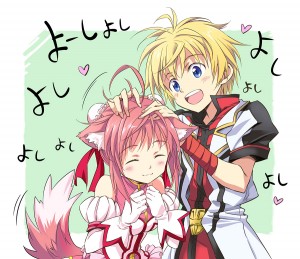
Since I’m close to finishing all the lessons in my Elementary Japanese textbook for my self-study, I may as well share one of the most interesting aspects of the Language. (Image Source)
If you know some Japanese, there are three levels of speech compared with English. This consists of casual, polite and formal. In some instances like talking to superiors, knowing how to use honorific expressions can become very important.
Aside from the honorific titles that are always used, honorific expressions to raise the verb or action for people whom we respect. If you watch any anime, you might notice that some characters might use honorific expressions. There are three types and they consist of respectful, modest and humble expressions. Some examples of these verbs are shown below. Note that the list is not complete.
| Respectful | Modest | Humble | |
| 食べる・飲む | 召し上がる | いただく | |
| 見る | ご覧になる | ||
| 言う | おっしゃる* | 申す | |
| 寝る | お休みになる | ||
| する | なさる* | いたす | ご/お(verb)する |
| 来る/行く | いらっしゃる* | 参る | |
| ある | ござる* | ||
| です | でござる* | ||
| いる | いらっしゃる* | おる | |
| 〜ている | ていらっしゃる* | ておる | |
| くれる | くださる* | ||
| あげる | さしあげる | ||
| もらう | いただく | ||
| any other verb | お(verb stem)になる | お(verb stem)する | |
* – Irregular conjugation (ex: いらっしゃる>いらっしゃいます)
When I first saw it, it looks intimidating. Yes, honorific language besides the Chinese Characters is what makes Japanese difficult. Once I started to practice them, they weren’t that hard. I just needed to memorize the expressions for these specific ones and conjugate the others. They pretty much work like any other verb. However, picking which one to use depending on the situation can be tricky, so I’ll show some examples.
Respectful Expressions
Respectful expressions are commonly used to bring up the actions for people that we respect, such as our boss, superiors, teachers, etc. Here are a few examples:
あずささんはケーキを召し上がりました。(azusa san wa kēki o meshiagari mashi ta .)
Azusa (graciously) ate a cake.
さわさんの母はこの写真の本をくださいました。(sawa san no haha wa kono shashin no hon o kudasai mashi ta .)
Sawa’s mother (graciously) gave me this photo book.
オバマ大統領は大学でスピーチをなさいました。(obama daitouryou wa daigaku de supīchi o nasai mashita.)
President Obama (graciously) gave a speech at our university.
Respectful expressions can also be used to give respectful advice. Please note that are more like commands than requests.
ワシントン記念塔にご覧ください。(washinton kinen tou ni goran kudasai .)
Please look at the Washington Monument.
お持ちください。(omachi kudasai.)
Please wait.
食べ物を召し上がりください。(tabemono o meshiagari kudasai .)
Please help yourself to some food.
Modest Expressions
Modest expressions are typically used to tell what you do modestly. In this instance, the listener gets raised while you get lowered.
四条貴音と申します。(shijou takane to moushi masu .)1
My name is Shijou Takane.
私の父はデパートに勤めております。(watakushi no chichi wa depāto ni tsutome te ori masu .)
My dad works at a department store.
英語を教えたいので、日本に参りました。(eigo o oshie tai node , nippon ni mairi mashi ta .)
I came to Japan because I want to teach English.
Humble Expressions
Lastly, humble expressions are used when we do something out of respect for an action or something.
宿題を困ったので、先生にお会いしていました。(shukudai o komat ta node , sensei ni o ai shi te i mashi ta .)
I (humbly) met my professor because I had difficulty with my homework.
私は部長にプレセントをさしあげました。(watashi ha buchou ni pure sento o sashiage mashi ta .)
I (humbly) gave a present to my department manager.
Hopefully, this gives you some basic insight on how honorific expressions works in Japanese. Although you probably won’t use them in daily conversations, there are several instances where they can become useful.
Some Notes
- Alternative to (name) です ↩

